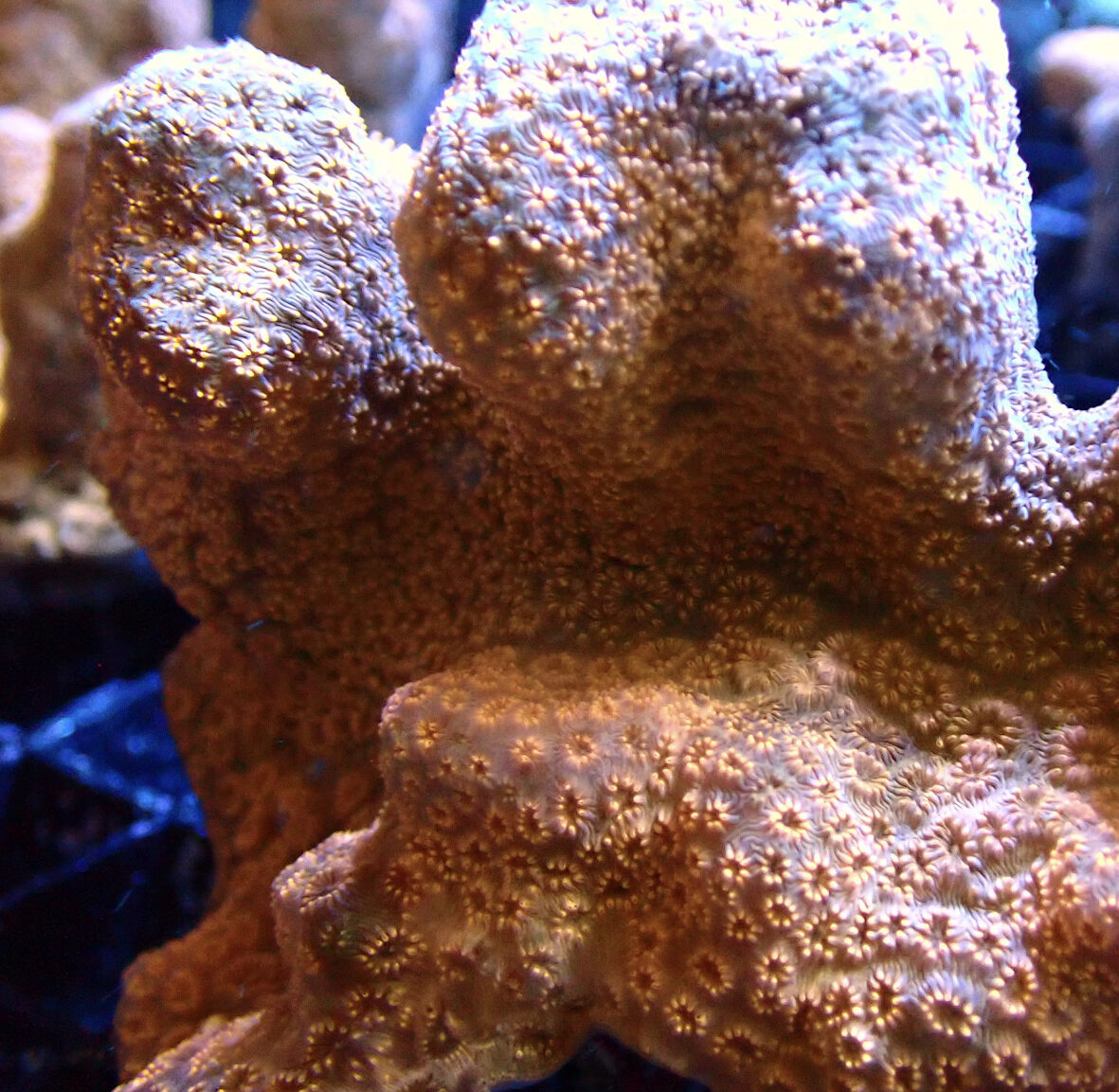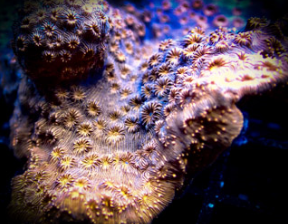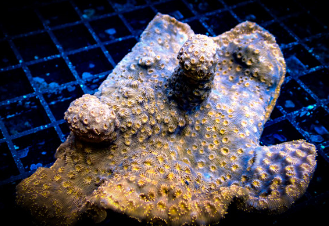Pavona maldivensis

Pavona is often referred to as Lettuce Coral, Cactus Coral, or Potato Chip Coral in the aquarium hobby.
They are small polyp stony (SPS) corals that form thin plates as branches that are covered with polyps giving it a fuzzy appearance.
Pavona colours vary from shades of green, tan, and fluorescent colours. They have a fluorescent glow that can be seen beneath the polyps, giving these corals an interesting look.
Pavona Corals are a filter-feeding species, that in the wild catch plankton and other small organisms from the water column using their hair-like tentacles.
In the aquarium environment, they will need to be provided with plenty of strong in-direct water flow from which they can filter plankton. They also receive a good portion of their nutrition from the symbiotic algae zooxanthellae hosted within their body, so they will need moderate to strong lighting.
Basic Water Parameters
pH
8.0 to 8.3
Salinity
34 - 36ppt
Temperature
24.0 - 26.0 Celsius
Husbandry Requirements
Lighiting
180+ PAR - 110-175 PAR
Flow
High supplemental turbulence required - Some turbulence required
Aggressiveness
Has long sweeper tentacles and/or strong stinging ability that can damage most other corals.
Acclimation Guide
- It is highly recommended to acclimate all corals to a new environment to prevent shocking corals.
- Place the corals in the water from the packing bags and slowly add the water from new environment (Dripping method is recommended).
- Use the water parameter above as a guide.
- When the vessel becomes full , replace the water with the new environment water by a small amount at a time.
- Ensure the water temperature matches with the new environment’s water.
- After the corals have spent adequate time in the acclimation water, gently place the corals to a new environment.
- It is recommended to place new corals under lower light intensity than usually required. Once corals show no signs of stress, it can be moved to higher lighting area gradually.”



